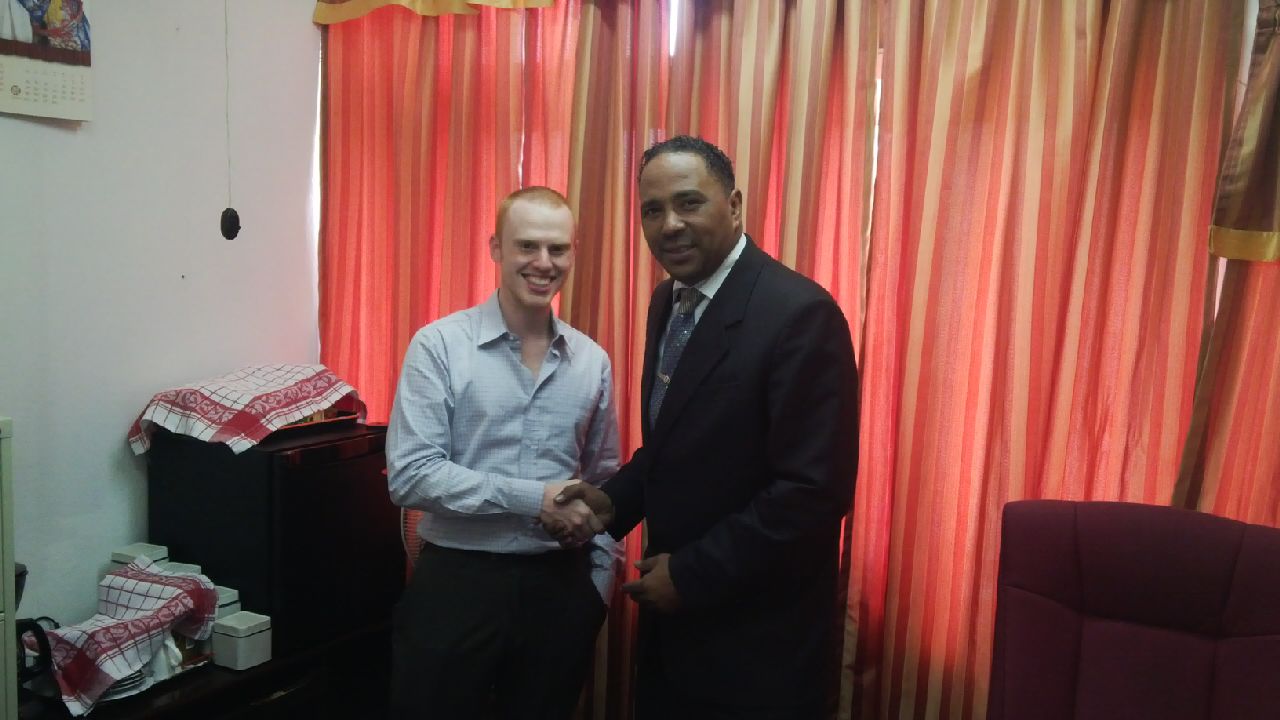
EspañolFor the first time in history, an entire national population will have the cryptocurrency bitcoin in their hands for use: the people of Dominica, an island republic in the middle of the Caribbean. An event to mark the occasion will be held in March 2015, thanks to the goodwill of local authorities and a collaborative initiative from Coinapult, Aspen Assurance, Bitcoin Beauties, and the College Cryptocurrency Network (CCN).
The initiative, known as “Let the Bit Drop,” will send a small of amount of bitcoin to every island resident via text message. This effort will turn Dominica, and its more than 70,000 residents, into the most densely concentrated bitcoin community in the world.
“The objective is simply to increase bitcoin adoption. We are going to create tens of thousands of new bitcoin users overnight. Of course, we hope that these people enjoy and continue to use bitcoin, and that the project provides proof of concept to similar communities all around the world. We want a thousand Bit Drops,” said Ira Miller, CEO of Coinapult, in an exclusive interview with the PanAm Post.
Enigmatic Release Date a Tribute to Mathematics
The launch date chosen by organizers, March 14, 2015, at 9:26 a.m., coincides with Pi Day, a global celebration of the mathematical constant.
“Pi is an objective, mathematical truth, not a human creation. Everyone can understand, use, and be empowered by Pi. Bitcoin applies the same objectivity and openness to financial transactions,” says Miller, referring to the underlying mathematical principles of bitcoin that he believes allows the currency to provide security and transparency.
“Also, Pi Day is conveniently right after Carnival, one of the most glorious of all imperfect, human creations,” he added.
The day of the “Bit Drop,” organizers will celebrate the currency launch with a nationwide party with various musicians and celebrities in attendance. They plan to hold raffles and host informational booths with introductory and educational material related to the cryptocurrency.
Another project partner, the Cryptocurrency College Network (CCN) of the Massachusetts Institute of Technology (MIT), will be in charge of distributing educational material throughout the island and explaining bitcoin’s various uses and advantages. They will also work to educate local Dominican retailers on the benefits of accepting bitcoin as payment.

Funding for the purchase of bitcoins that will be distributed for free to the general public will come from donations and sponsors wishing to participate in the project.
As for the connection between organizational partners and the authorities of the island, Miller says his relationship with local officials is primarily for educational purposes.
According to the CEO of Coinapult, the officials he has spoken with are open to the initiative because they believe in the economic potential that bitcoin can offer the Caribbean island.
Those interested in donating to help the project see a successful launch can visit letthebitdrop.com. Sarah Blincoe, the leader of the project, told the PanAm Post that those who donate 0.1 bitcoins or more will be entered into a drawing to win an all-inclusive trip to join the celebration.
Dominica’s Bitcoin Opportunity
Geographically, Dominica is located in the Caribbean, north of Venezuela and southeast of the Dominican Republic. Dominica is a republic that forms part of the British Commonwealth, with an unemployment rate of 23 percent and a low annual rate of inflation of 2.1 percent.
According to data from the Heritage Foundation, Dominica is above the world average in terms of its economic liberalization, but has high levels of internal corruption.
In 2008, Dominica joined ALBA, the regional commercial alliance led by Hugo Chávez, which maintains a socialist economic view.
Translated by Alex Clark-Youngblood.
Editor’s note: the date has been updated, to bring it into line with the original Spanish version of the article. The initial version of this article also asserted that the currency would have official status. This was based on a misunderstanding, and has necessitated both an updated headline and lead paragraph. We apologize for the mistake.
 Versión Español
Versión Español












